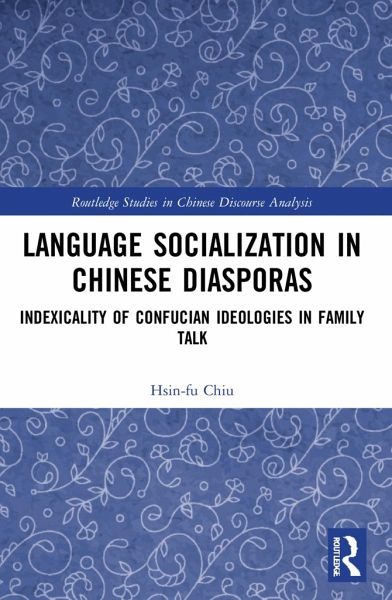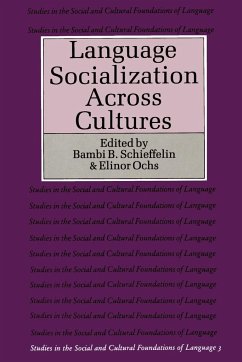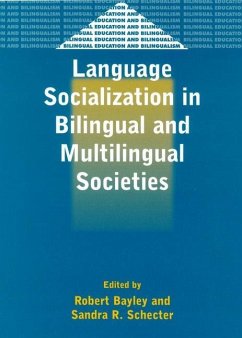
Language Socialization in Chinese Diasporas
Indexicality of Confucian Ideologies in Family Talk
Versandkostenfrei!
Versandfertig in 1-2 Wochen
56,99 €
inkl. MwSt.
Weitere Ausgaben:

PAYBACK Punkte
28 °P sammeln!
This book provides ethnographically informed analyses of indigenous kin interactions in three Chinese diasporic households in LA. Drawing upon the approach that regards talk as a form of social practice, it demonstrates different ways in which relationships are indigenously orchestrated by Chinese parents and their American-born children.














